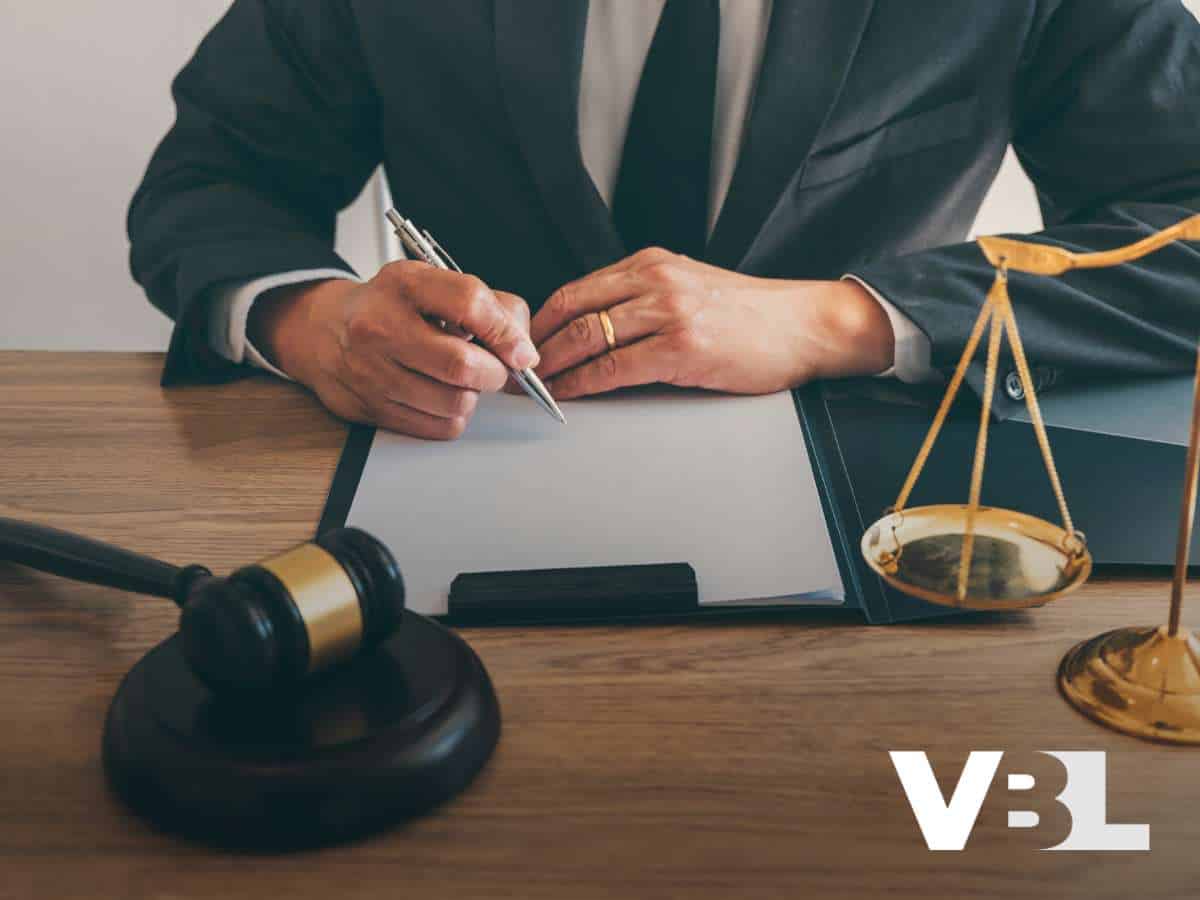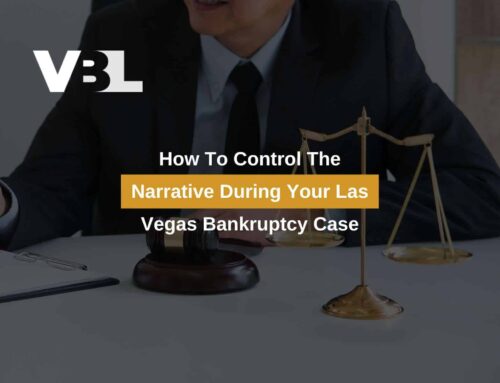Discharging A Casino Marker With Bankruptcy In Las Vegas
If you like to gamble on the Las Vegas Strip, you probably know just how inconvenient it is to carry enough cash or run to the ATM each time you need more. If so, you may have applied for a casino marker with at least one of Las Vegas’s many casinos. Casino markers eliminate the hassle of worrying about losing your cash or it being stolen, with the convenience of repaying the balance later with 0% interest. But failure to repay a casino marker is not a matter that is taken lightly in Nevada. There is a presumption under Nevada law that if a gambler doesn’t have sufficient funds in their bank account to pay their casino marker, they had intent to defraud the casino. This can be charged as a misdemeanor, or even a felony if the balance was at a certain level. Markers from multiple casinos from the same night are separate offenses, so a defendant under these circumstances could face significant penalties.
Not every unpaid casino marker will result in criminal penalties like incarceration, probation, fines, etc. If the gambler avoids criminal charges, the marker will remain a dischargeable debt in bankruptcy. This can be extremely beneficial, especially if a casino marker is one of several debts that the person is struggling to repay. Filing for bankruptcy can help a debtor avoid creditor lawsuits and judgments, asset repossessions, and more. But you should have your situation evaluated by an experienced bankruptcy lawyer to determine if your casino marker is dischargeable in bankruptcy. Want to schedule a time to speak with a knowledgeable Las Vegas bankruptcy lawyer with no cost or obligation? Call 702-370-0155 to get started today.

Setting Up A Payment Plan For A Casino Marker
Filing for bankruptcy can be useful whether or not your casino marker can be discharged by the bankruptcy. It can clear other debts and keep creditors from taking actions that will make your financial situation worse, like garnishing your wages or repossessing your vehicle. Despite these benefits, the dischargeability of your casino marker could still be the deciding factor for your bankruptcy filing. Here, you will want to consider whether or not you were charged with a criminal offense for defaulting on a casino marker and if the offense was prosecuted.
Failing to pay a casino marker can be charged as a crime in Nevada, because they are considered like checks. Therefore, defaulting on a casino marker is legally akin to writing a bad check. But casinos are aware that sending a gambler to jail for failure to pay a casino marker will make it exponentially more difficult for that person to pay off the marker. Oftentimes, they will be willing to work out a payment plan agreement to allow the gambler to pay off their marker after the NFT deadline has passed. This allows the gambler to avoid consequences like jail time, probation, a criminal record and post-conviction relief, etc. If the gambler incurred the casino marker while on vacation, a payment plan will also allow them the inconvenience of traveling back and forth for their criminal proceedings. If you know you won’t be able to pay back a casino marker within 30 days, you shouldn’t wait to start the negotiation process. Communicating back and forth will be easier with access to a computer in your home rather than after you have been arrested for defaulting.
Chapter 7 Or Chapter 13
If you have decided that bankruptcy is necessary to activate the automatic stay and address your debts, your next choice may be between chapter 7 and chapter 13. These are the two most common forms of personal bankruptcy. One of the two might be better for your situation, or be the only option you qualify for based on your circumstances. Read on to learn more about the different types of personal bankruptcy and how they may apply in a casino marker situation. For a free debt evaluation with an experienced Las Vegas bankruptcy lawyer to determine which chapter of bankruptcy works best for you, call 702-370-0155.
Chapter 7 Bankruptcy
Chapter 7 is the most popular type of bankruptcy and what most people think of when they hear the word. It has the potential to completely turn around a debtor’s financial situation by clearing unsecured nonpriority debt. The debtor will become protected by the automatic stay from when they first file the bankruptcy petition in court. This lasts until the case is discharged, which usually takes 3 to 6 months, or ends if the case is dismissed. The main issue that keeps many people struggling with debt from qualifying for chapter 7 bankruptcy is their income level. To keep people with adequate funds to repay debts from abusing the system, a debtor must earn less than the state median household income or pass the means test to show that they are eligible for chapter 7 bankruptcy.
It is also a top concern to ensure that assets are protected throughout the chapter 7 bankruptcy process. Assets must be valued accurately and have exemptions applied to them to protect them from seizure and sale by the bankruptcy trustee. All bankruptcy debtors need to attend a hearing called the 341 Meeting of Creditors. Most chapter 7 bankruptcy debtors won’t have additional hearings to attend unless special factors apply to their case. The debtor should submit a second credit counseling course certificate within 60 days of the 341 hearing and wait for their case to be discharged. When this happens, all unsecured nonpriority debts, like credit cards, medical bills, and personal loans, will be cleared. This may include casino markers which haven’t been prosecuted.
So if you meet the eligibility requirements for chapter 7 bankruptcy and your assets will be protected, should you file to address casino marker debt? If you were never criminally charged for defaulting on your casino marker, the answer may be yes. The answer may also be yes if charges were brought against you but eventually dropped. You can discuss your situation with a skilled member of our Las Vegas bankruptcy team free of charge. You may also qualify to file for chapter 7 bankruptcy in Las Vegas with our Zero Down payment option. Schedule your free consultation today by calling 702-370-0155.
Chapter 13 Bankruptcy
Chapter 13 bankruptcy works differently than chapter 7 because it pays off debts in a payment plan rather than clearing them. The payment plan lasts 3 or 5 years based on the debtor’s income. To qualify for chapter 13 bankruptcy, the debtor must have sufficient regular income to pay off bankruptcy costs, secured debts, and priority debts within the applicable time frame. Unsecured nonpriority debts, or those which would be wiped away in a chapter 7 filing, are only paid off as much as the debtor’s income allows. Here, a casino marker might count as a priority debt or an unsecured debt. What will affect your payment plan more is how much income is left after you pay your reasonable monthly expenses. Want to learn more about filing for chapter 13 bankruptcy in Las Vegas and receive an estimate for your payment plan? Call 702-370-0155 for your free consultation.
Do You Have Casino Marker Debt You Can’t Afford To Repay? Learn More About Your Bankruptcy Options.
Owing a casino marker is a debt that comes with serious consequences in Las Vegas. Many states will extradite defendants to Nevada to face criminal penalties associated with defaulting on a casino marker. But you may be eligible to clear a casino marker debt by filing for chapter 7 or chapter 13 bankruptcy. This type of issue should be discussed thoroughly with a bankruptcy attorney in Las Vegas so you don’t file a case with the wrong impression of what will happen to your debts. Our office offers free debt evaluations by phone so you can make a decision about bankruptcy without the pressure of consultation fees. Ready to get started? Call 702-370-0155 to set up your free consultation today. Contact us!

Las Vegas Bankruptcy Lawyers
LAS VEGAS
7251 W Lake Mead BLVD #300
Las Vegas, NV89128
Office: 702-879-2499
Email: [email protected]
HENDERSON
1489 W Warm Springs Rd. Ste 110
Henderson, NV 89014
Email: [email protected]
Additional Information at:
Phoenix Bankruptcy Lawyer
Phoenix DUI Lawyer
Chandler Bankruptcy Lawyer
Vegas Zero Down Bankruptcy Attorney
Gilbert Bankruptcy Lawyers
Arizona Zero Down DUI
AZ Bankruptcy Lawyer
















